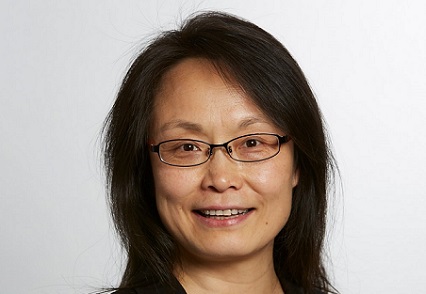Cecilia Xu Lindsey FCIArb
Cecilia practises as an independent Barrister in the Bar of England and Wales. She also acts as Counsel in arbitration, and accepts appointments as Arbitrator, being a panel-listed arbitrator of institutions including ICC International Court of Arbitration and London Court of International Arbitration. Through her unique career path and skills in the Chinese culture and Mandarin language, Cecilia shares her insight of arbitration.
1. How is your arbitration practice different from your general litigation experience?
My general litigation experience is through my practice as an independent barrister in Commercial / Chancery areas at 9 Stone Buildings barristers’ chambers based at Lincoln’s Inn in London. The main difference between these two practices is that the arbitration process is private, unlike most of the cases I act for which are heard in open courts. Another distinctive feature is that arbitration offers more flexibility to the parties, whereas in litigation there are comprehensive and rigid rules that govern the conduct of litigants throughout the court proceedings. There are a number of other differences such as formality, speed, selection of the tribunal, use of legal representatives, to name a few.
2. What do you consider to be your biggest achievement in the field thus far?
Becoming a Fellow of CIArb (FCIArb). It presents a privileged recognition of and commitment to knowledge, skills and expertise in the profession of arbitration. Fellowship has enriched my own practice in international arbitration in the areas of Company / Commercial law, International Trade, Insurance, Banking law and Sports law. It has also brought further opportunities of exchange and working with lawyers, arbitrators, judges and law enforcement professionals in other jurisdictions across the globe.
3. What do you consider to be the biggest challenge in your career as a practitioner in arbitration?
There are a number of challenges. As a practitioner, I think the present biggest challenge is to continue bringing diversity and gender parity in the profession. A number of arbitration institutions have already made commitment to ensuring progress in achieving gender parity in the profession. 2019 is a significant year. The first 100 years since the decree of the UK’s Sex Disqualification (Removal) Act 1919 remind us all how our societies have come through. We must remind ourselves what further could be achieved in the decades ahead and afar.
4. What is it like to work in a predominantly male profession such as ADR?
I have always worked in predominantly male professions/sectors, it just happened that way without intention, and enjoy working with people (female or male). Many of my colleagues are great people of integrity, professionalism and wisdom. The arbitration profession relies on people who demonstrate commitment, intellect and talent for its continual success in dispute resolution. I hope that we all strive to contribute to building a more inclusive profession which truly upholds equality and diversity.
5. If you had a time machine, what piece of advice would you give to yourself at the beginning of your career?
Persevere.
6. If you could meet for dinner a famous person, dead or alive, who would that be?
Queen Elizabeth I. The monarch administered and promoted arbitration. Under her reign, the practice experienced “The Golden Age of Arbitration”, as presented by Professor Derek Roebuck in his book.
